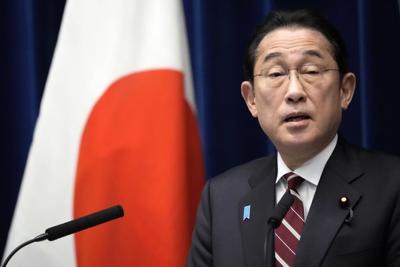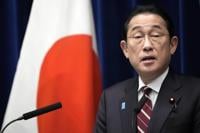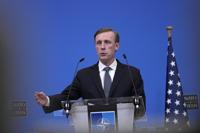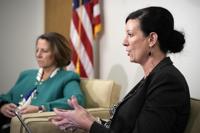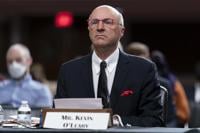TOKYO (AP) — Japanese Prime Minister Fumio Kishida reiterated Thursday his determination to work toward a summit with North Korea’s Kim Jong Un to realize the return of Japanese people believed abducted by North Korean agents in the 1970s and 80s.
“I remain committed to realizing this for Japan,” he told reporters, while declining to directly address the recent comments from North Korea that suggested such a meeting would be possible only if Japan stops pressing the abductions issue.
Speaking at a news conference after the government budget cleared parliament, Kishida stressed he was directly involved in high-level negotiations to fix various bilateral problems, amid growing worries about neighboring North Korea’s missiles and nuclear weapons programs.
In 2002, Kim Jong Il, the late father of Kim Jong Un, told then-Prime Minister Junichiro Koizumi that its agents had kidnapped 13 Japanese in the 1970s and 80s, and allowed five of them to return to Japan.
Japan thinks hundreds more may have been abducted during that period and that some are still alive. Koizumi’s second visit to North Korea in 2004 was the last summit between the two nations.
Kishida, prime minister since 2021, also promised to wrest the nation out of decades-long deflation and set off “a positive cycle” of higher wages, company profits and strong productivity.
“We have this historic chance to get out of deflation,” Kishida said, noting that the changes will come under his “new capitalism” program, based on economic changes such as a more mobile labor force, investments in artificial intelligence and income growth for the middle class.
He promised that legal revisions and an internal investigation were underway to deal with a burgeoning scandal centered around political funding that ruling party lawmakers had allegedly secretly received through shady methods like expensive tickets for fundraising parties.
Kishida said more time is needed to sort out details, but the erring politicians will get punished, to restore public trust.
Kishida has seen his popularity plummet to record lows in recent months over the scandal. But his ouster, even if it happens, will likely result in another leader from the ruling Liberal Democratic Party, because the opposition is weak and splintered.
There is even speculation among pundits that Japan will get its first female prime minister, such as Tokyo Gov. Yuriko Koike. As a woman, Koike would be seen as a fresh change, although she is unlikely to stray too far from the status quo.
A Japanese prime minister has almost always been a member of the lower house of Parliament, so Koike would need to run for a seat and give up being city governor. The Liberal Democrats have ruled Japan almost incessantly after World War II, except for brief periods of opposition control.
___
Yuri Kageyama is on X:

